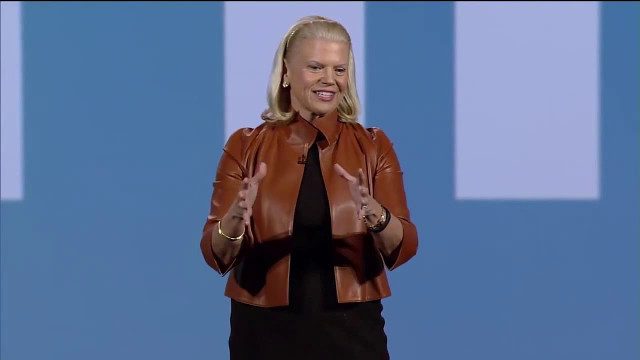
Photo by Markus Spiske on Unsplash
Tired of reading about the Corona virus? Me too.
Unfortunately, the virus is causing major changes…everywhere. In the United States, workers are being sent home, the stock market is a complete roller-coaster, and infection rates are starting to climb.
The one bright spot of all this Corona virus talk is that Xerox seems to be backing off HP (too soon to be making jokes?)
Acquisitions/Investments
- Unity acquires Dublin-based deep learning startup Artomatix
The Dublin startup builds developer tools that allow game studios to more easily create deep learning-enhanced textures that scale more convincingly.
Developers can use the startup’s ArtEngine platform to bring real-world materials to their game worlds, adapting the visual patterns to their 3D worlds more quickly than existing toolsets while eliminating seams and irregularities. ArtEngine uses AI to identify visual flaws in replications and saves developers from having to endlessly tweak environments.
https://techcrunch.com/2020/03/11/unity-acquires-dublin-based-deep-learning-startup-artomatix/
- How the coronavirus outbreak will stress-test startups
According to a Dun & Bradstreet whitepaper released this week, 94% of Fortune 1000 companies have key elements of their supply chain housed directly within the epicenter of the outbreak in China. Supply-side shocks are much more difficult for central banks to contain by moves such as interest-rate cuts or financial stimulus. These typically serve to catalyze demand (through increased cash or borrowing power), but do not directly alleviate the kind of production paralysis capable of hamstringing global commerce.
Startups are especially vulnerable to such supply-side disruptions, each of which is worth considering independently. Operating through lean organizational structures in which personnel often occupy cross-functional roles, decreases in staff productivity can create significant issues for interdependent activities at startups. The diversion of attention — due alternatively to the need to attend to personal needs (such as family caregiving, healthcare issues, or household concerns) or societal requirements (such as monitoring the development of the virus and state or federal reactions to it) — can make a cumulative impact over the days, weeks, and months of the outbreak.
https://techcrunch.com/2020/03/10/how-the-coronavirus-outbreak-will-stress-test-startups/
- Xerox Pauses Campaign to Take Over HP as Coronavirus Pandemic Escalates
The company said Friday it is postponing additional presentations, interviews with the press and meetings with HP shareholders.
“In light of the escalating Covid-19 pandemic, Xerox needs to prioritize health and safety of its employees, customers, partners and affiliates over and above all considerations, including its proposal to acquire HP,” Xerox Vice Chairman and Chief Executive John Visentin said.
The company said it doesn’t consider the market decline since it put out its bid or the temporary suspensions of HP shares in recent days as a result of marketwide circuit breakers as a failure of any condition to acquire HP. Xerox said it would take the same view in future trading halts.
- Oracle Tees Up Another $15 Billion In Buybacks
The company reported revenue for its quarter that ended Feb. 29 of $9.79 billion, up from $9.61 billion in the comparable period a year earlier. That surpassed forecasts from analysts polled by FactSet.
Oracle also reported a profit of $2.57 billion, or 79 cents a share, compared with earnings of $2.75 billion, or 76 cents a share, for the same quarter a year ago. Excluding stock-based compensation and certain other expenses, Oracle reported earnings of 97 cents a share, a penny more than forecasts from analysts.
https://www.wsj.com/articles/oracle-tees-up-another-15-billion-in-buybacks-11584047813
JPMorgan, Bank of America, Citigroup and other major banks suspend stock buybacks due to pandemicBank stocks have been pummeled so far this year as the virus has spread around the world. Shares of JPMorgan and Morgan Stanley are both down more than 25% since the start of 2020, while shares of Citi have fallen more than 36%.
As the pandemic has sharply slowed down economic activity in certain industries, such as travel, major companies like Boeing have announced that they will draw down their major credit lines from banks.
“The decision on buybacks is consistent with our collective objective to use our significant capital and liquidity to provide maximum support to individuals, small businesses, and the broader economy through lending and other important services,” the Forum said.
Software/SaaS
- Oracle-SAP Showdown: Will Larry Ellison Rip Huge ERP Customer from SAP as Promised?
Oracle announces its fiscal-Q3 earnings tomorrow afternoon. That would be the ideal time for it to disclose this cutover customer whose defection from SAP will trigger, according to Ellison, a mass move of other big SAP ERP customers to Oracle.
Adding to the drama is SAP’s complete dismissal of these claims, which I wrote about several weeks ago in Oracle-SAP Showdown: SAP Calls BS on Larry Ellison Claim of Snatching Huge SAP Customer.
While the public wrangling between these two head-on competitors still run by founders with very healthy egos and little love for the other has been going on for years, it’s never taken a twist quite like this one about an imminent Pied-Piper wave of defections.
Ellison’s predictions about trouble brewing for SAP came in Oracle’s mid-December earnings call, during which Ellison claimed that “SAP’s customer base is up for grabs.” And before a quick recap of Ellison’s promise about a showcase customer defection, bear in mind that SAP co-CEO Christian Klein totally dismissed such a possibility, saying “And actually we double-checked and honestly, I couldn’t find any customer who moved away from SAP ERP.”
https://cloudwars.co/will-oracle-steal-huge-erp-customer-from-sap-larry-ellison/
- Microsoft Teams goes down — just as everyone starts working from home
The technology giant left a cryptic message — which at least is more than its users can do right now — on Twitter, stating that it’s “received reports that impact associated with TM206544 is ongoing.”
“We’re investigating the issue,” said Microsoft.
It’s Microsoft Team’s second outage in as many months after the software giant forgot to renew a TLS (HTTPS) certificate, forcing the service offline and users unable to communicate with colleagues for hours.
Other
- France Fines Apple $1.2 Billion for Antitrust Issues
France’s competition regulator, which had been examining wholesalers who sell Apple’s products in the country, said the company had unfairly divided products and customers between two wholesalers, Tech Data Corporation and Ingram Micro. The regulator accused Apple of making its wholesalers charge the same prices for products offered in Apple’s own retail stores and abusing its broad economic power over the firms.
Isabelle de Silva, the president of the French Competition Authority, said in a statement that dividing duties among the wholesalers also had the effect of “sterilizing the wholesale market for Apple products.” Tech Data and Ingram Micro were each fined millions of euros.
An Apple spokesman, Josh Rosenstock, said in a statement that the company plans to appeal the decision.
https://www.nytimes.com/2020/03/16/technology/france-apple-antitrust-fine.html
- Bill Gates to Leave Boards of Microsoft and Berkshire Hathaway
Most recently, Mr. Gates spent a lot of his time at Microsoft on devising tools that could make businesses more productive, said S. Somasegar, a former Microsoft corporate vice president who left in 2015 and is now a managing director at Seattle venture capital firm Madrona Venture Group. Microsoft has been one of several tech companies to promote so-called low-code tools to make it easier for regular employees to write software applications.
Berkshire Hathaway Chairman and CEO Warren Buffett, who has a long-running friendship with Mr. Gates, said former American Express Co. CEO Kenneth Chenault would replace Mr. Gates on the conglomerate’s board. Mr. Chenault, who joined Facebook Inc.’s board in 2018, won’t seek re-election, the social-media company said Friday.





